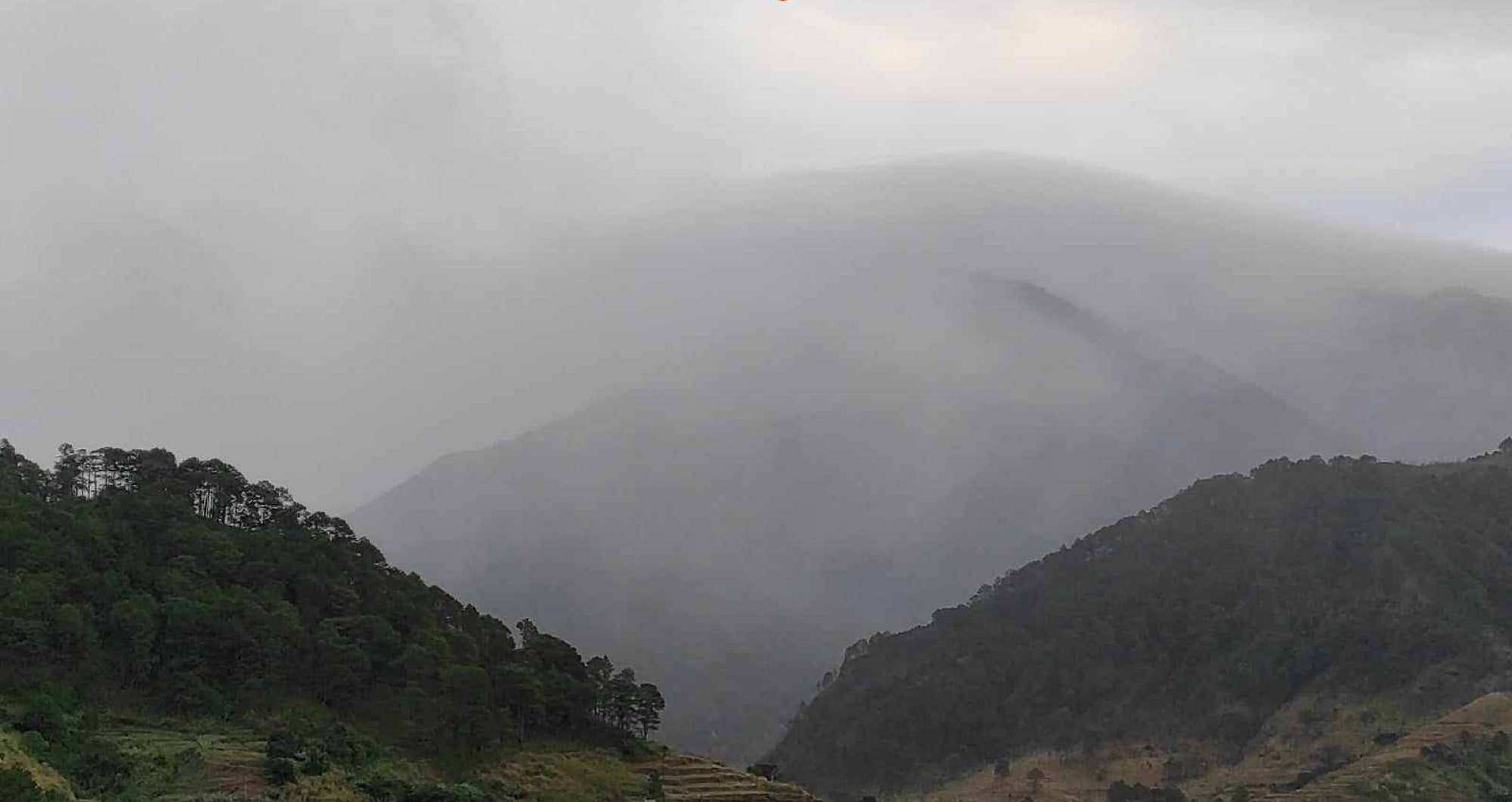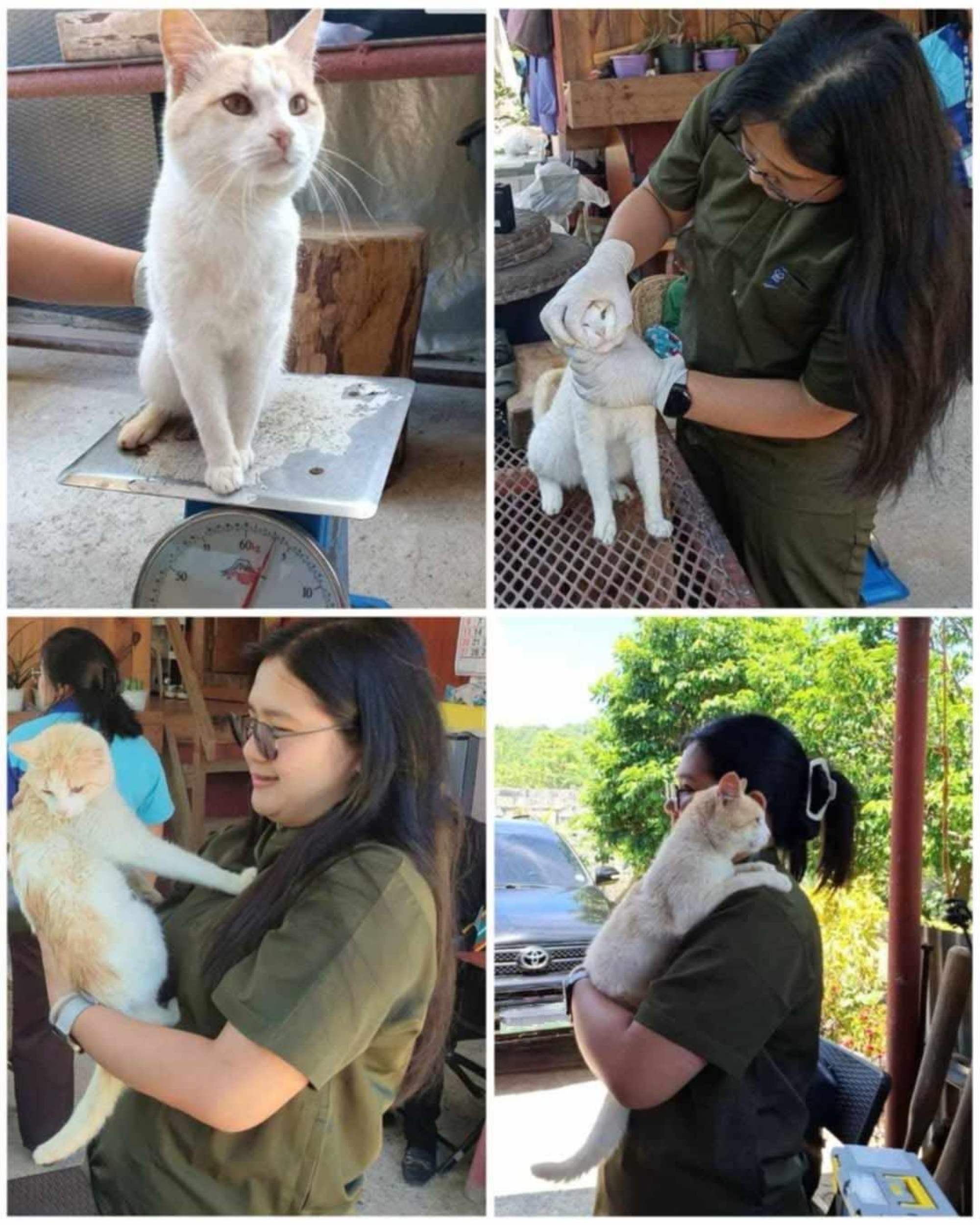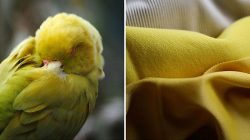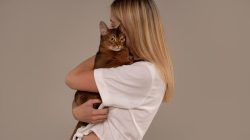Internet users criticize authorities for removing the animal from a frequently used hiking path due to concerns about predation.
The disappearance of a cherished cat frequently spotted wandering the hiking paths at one of the
Philippines
The topic of tallest mountains has ignited intense online discussions among supporters of animal rights and environmental preservation.
The lovable stray cat known as Pugal became an internet sensation when images spread across social media showing it cuddling with hikers and venturing into their campsites at Mount Pulag in the northern part of the Philippines, which stands as the nation’s third-tallest peak.
Nonetheless, officials from the environmental department verified that the creature had been relocated from the region, which is designated as a protected landscape because of its rich variety of species.
“Pugal is currently under the supervision of one of our Pulag Protected Area Management Office (PAMO) personnel. A vet is en route to examine the cat,” stated the Department of Environment and Natural Resources (DENR) on their Facebook page last Sunday.
Following a posting by the widely-read local platform known as the Cordillera Sun, which described Pulag as “an intrusive species that must be eliminated from the region,” the department took action.
“Is it charming and endearing? Absolutely. However, it’s also an unwelcome hunter. This invasive species preys on indigenous and endemic fauna living within the Mount Pulag Protected Landscape. Such prey includes birds, small mammals such as cloud rats, and tiny reptiles,” the report stated.
Nevertheless, internet users contended that human activities like mining and tourism presented a more significant ecological threat to the mountain.
“Just one cat—Pugal—a harmless creature. It’s heartbreaking that they have to exclude him from the summit merely for being considered a threat! The true culprits behind the destruction of our environment are humans themselves,” wrote user Sheila Moro Recapente on Facebook.
Rather than tackling the genuine problems confronting Mount Pulag, they decided to eliminate the cat, treating it like the primary issue and the only ‘threat’ to the region’s native fauna… unjustly branding it as an ‘invasive apex predator,’ despite the fact that it merely lived harmoniously in the mountains where it had been born and nurtured,” remarked another commenter named Glaiza Flores Cadimas.
Cats are actually categorized as an invasive species by the International Union for Conservation of Nature.
“Heidi Marquez-Caguioa, the programme director for the Animal Kingdom Foundation, stated that cats possess an inherent instinct and capability to prey on native species and wildlife, such as those found in Mount Pulag,” she explained.
Marquez-Caguioa further stated that these cats typically preyed on smaller creatures like birds, rodents, reptiles, and insects.
Experts argue that allowing cats to wander freely in natural habitats is unadvisable due to the considerable risk they present to indigenous fauna and ecosystems. Additionally, these domesticated animals might not be safeguarded against bigger wildlife or predators when unsupervised. There’s also concern about them contracting various ailments or potentially introducing pathogens into the wilderness environment,” she noted.
Celine Murillo, a biodiversity content creator, expressed similar views, emphasizing that cats shouldn’t be regarded as “villains.”
Murillo pointed out that biodiversity is confronting a bigger and more urgent challenge from harmful activities like deforestation and mining. He further emphasized that alongside implementing wildlife protection regulations, initiatives focused on enhancing animal well-being must also receive attention.

The Furvent Animal Rescue and Advocacy, an organization dedicated to animal welfare located in Baguio City of Northern Philippines, informed This Week in Asia that their closeness to Mount Pulag was a factor in deciding to participate in Pugas’ rescue operation.
Furvent was among the initial advocacy organizations to share information regarding the cat’s situation and has continued to provide periodic updates about the feline to its audience.
“Although we weren’t responsible for removing him initially, our primary focus quickly became ensuring his move to a new setting would be seamless and beneficial for him. We contacted individuals involved in his case and provided assistance wherever possible. From that point onward, we have collaborated closely with the DENR and the adoptive family to oversee Pugal’s well-being and facilitate his adaptation,” stated Lovely Tuazon, founder of Furvent.
Tuazon mentioned that she and her team had a meeting with department officials to talk about Pugal’s well-being. During this discussion, they were reassured that the cat was in good health and would receive routine veterinary examinations.
Tuazon pointed out that Pugal’s case underscored “the sensitivity and interconnection between animal welfare and environmental conservation, particularly when it concerns domestic animals within protected ecosystems.”
More Articles from SCMP
Diplomats urge for a new global framework to address the turmoil caused by Trump’s tariffs.
The Singaporean cabinet has been sworn in with Prime Minister Lawrence Wong pledging to navigate the nation through a changing global landscape.
His Chinese-American forebear established the concept of birthright citizenship. Now he battles to uphold it.
New prospects for Hong Kong comics: Artist secures coveted Star Wars manga assignment
The article initially appeared on the South China Morning Post (www.scmp.com), which is the premier source for news coverage of China and Asia.
Copyright © 2025. South China Morning Post Publishers Ltd. All rights reserved.







